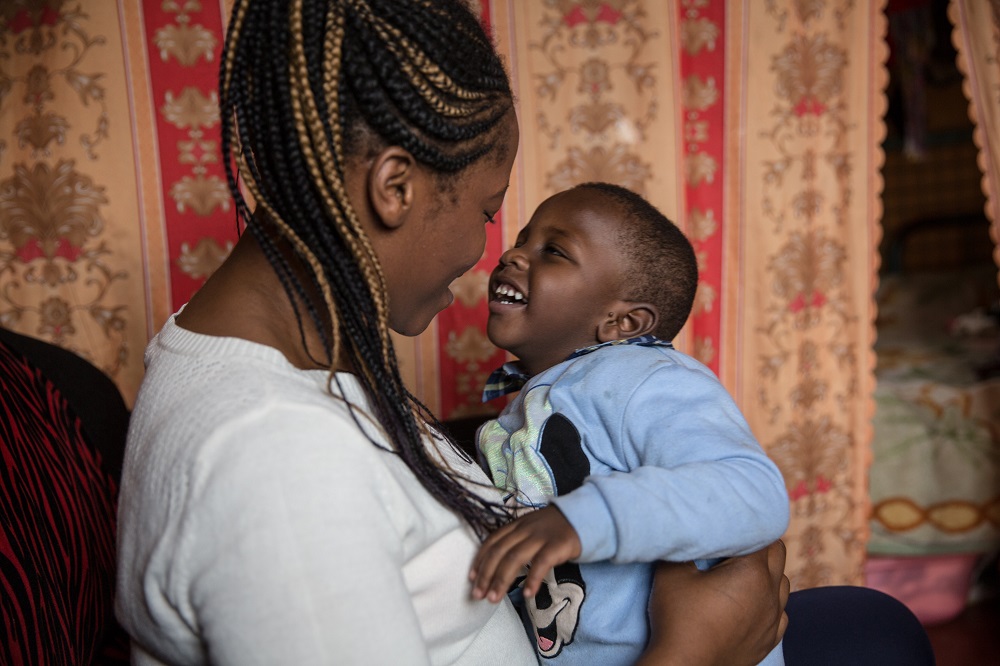Sospeter’s story
Sospeter has learned vital communication and mobility skills after Sense International ensured that he and his family could access specialist support.

In Kenya, children with deafblindness and other complex disabilities rarely receive the support they need. They often struggle to form connections with others or develop vital skills, leading to isolation and a lack of independence. Sospeter was born deaf with complex medical needs. The diagnosis left his parents desperate for answers, feeling alone, with no-one to support them.
‘We were heartbroken after learning that our baby was deaf and could not develop at the pace of other children,’ explains Tabby, Sospeter’s mother. ‘You are so desperate for answers, yet nobody has them, and it feels like the majority of people do not care.’
Sospeter was identified as part of Sense International Kenya’s early intervention programme. After the screening process highlighted that he had a hearing impairment and additional needs, he was referred for specialist support. Since this time, he has received regular sessions with a specially trained therapist to develop communication, mobility and other vital skills.
‘Meeting the team at Sense International Kenya was the turning point for the family,’ Tabby says. ‘They gave us a new hope and purpose for our baby.’
The therapy sessions have enabled Sospeter to communicate with his mother, feed himself and walk independently. He has also been fitted with hearing aids. His therapists and doctors are extremely pleased with his progress. They say that his hearing has improved, and he often tries to imitate the sounds that he can hear.
Sospeter’s therapist, Elly, says: ‘It is such a satisfaction watching a child improve and seeing their parents smile once more.’
Now that he is six, Sospeter will start receiving support to access education through Sense International’s inclusive education programme. Initially home-based, this will focus on 1:1 learning within a familiar environment, before he progresses on to a school-based setting.
